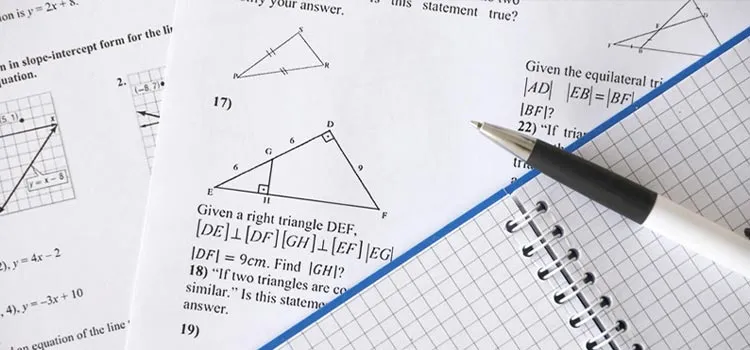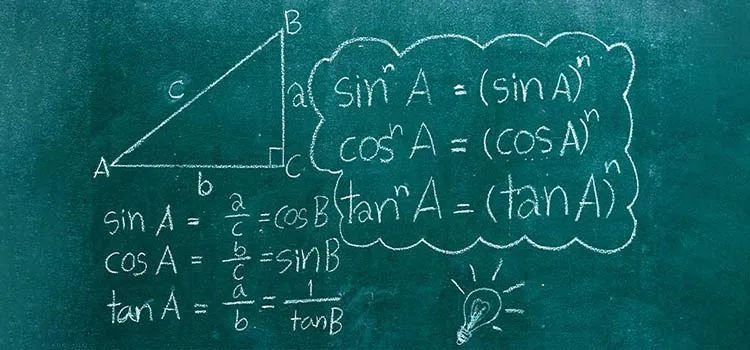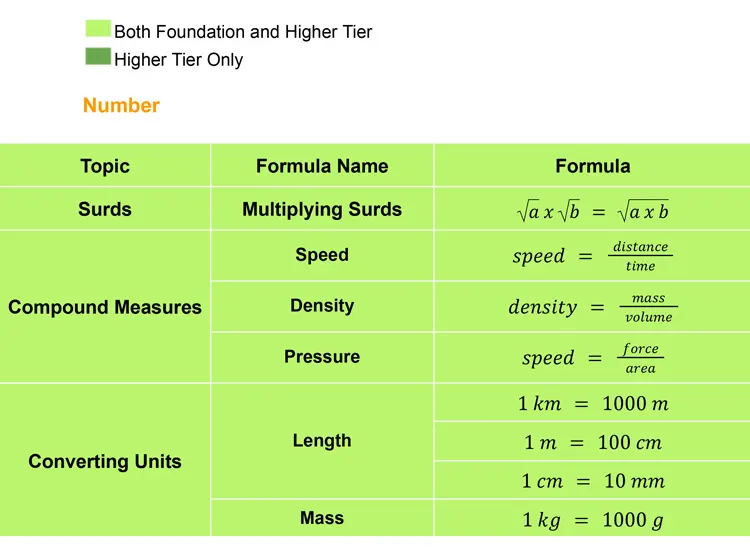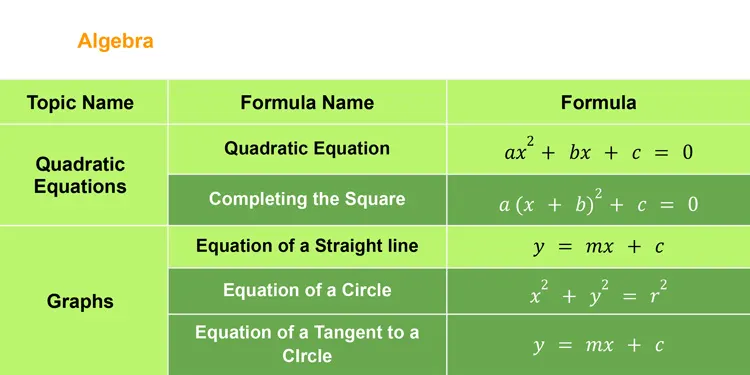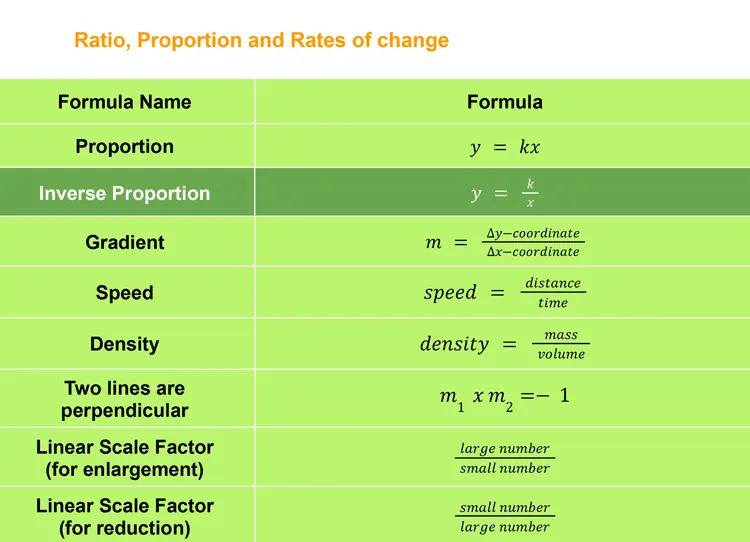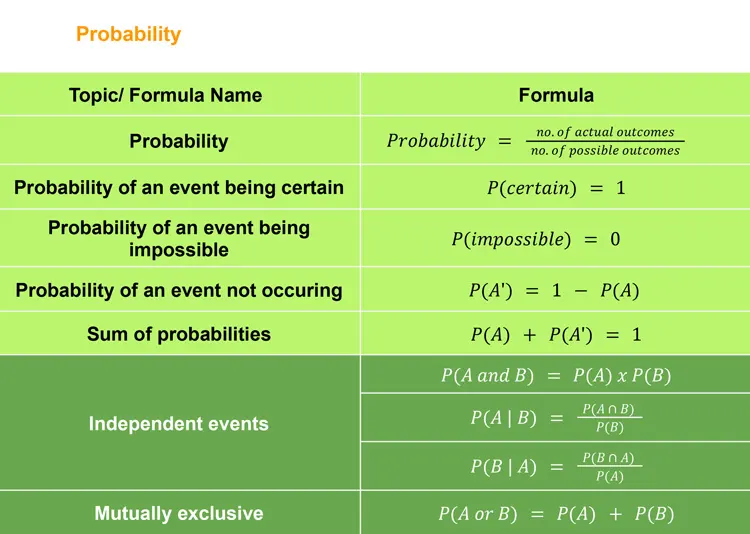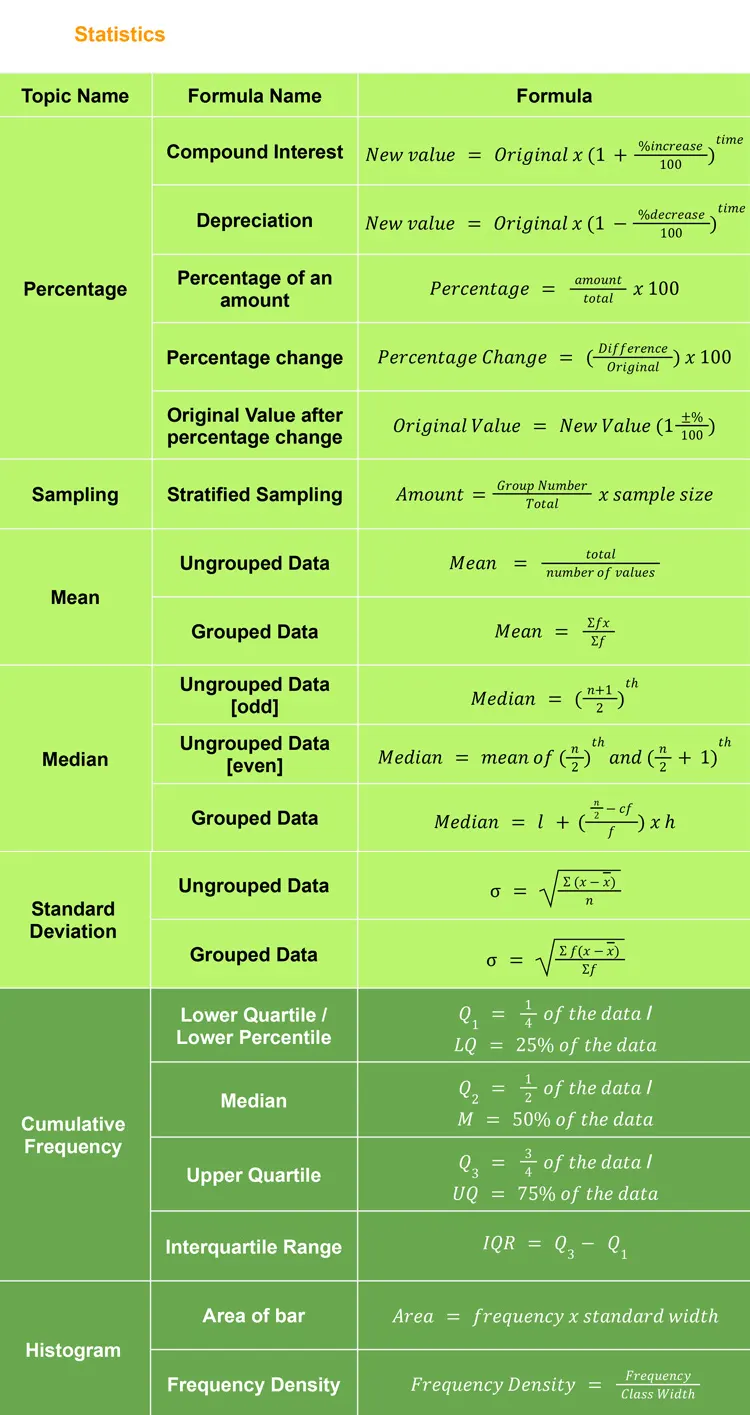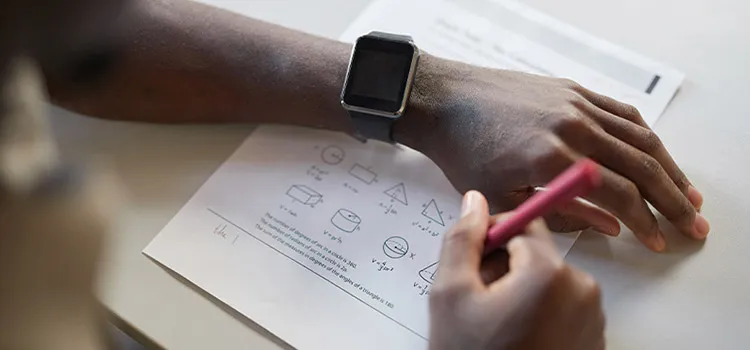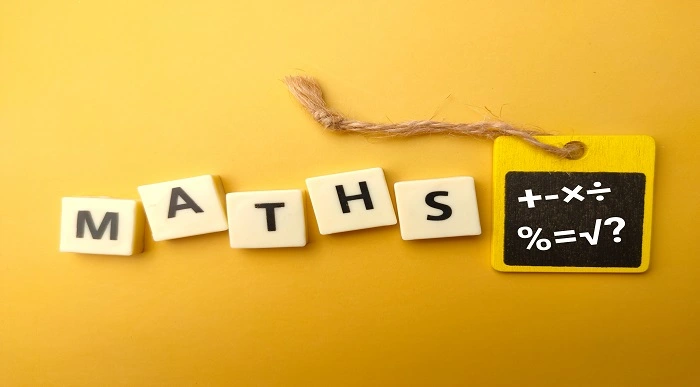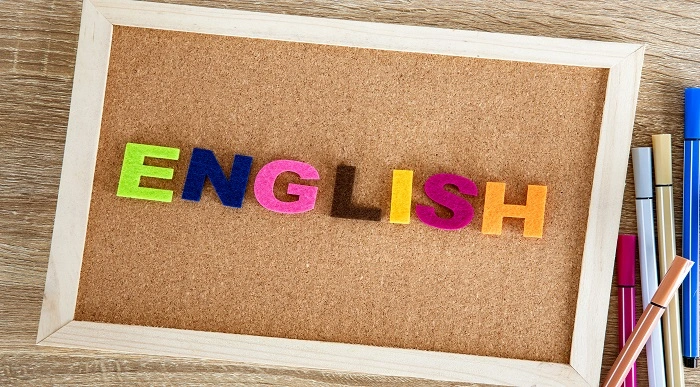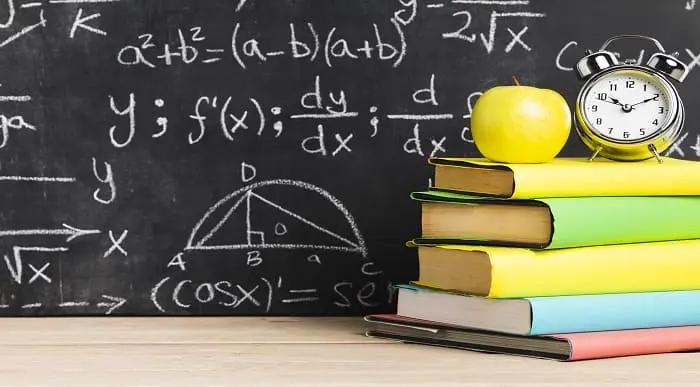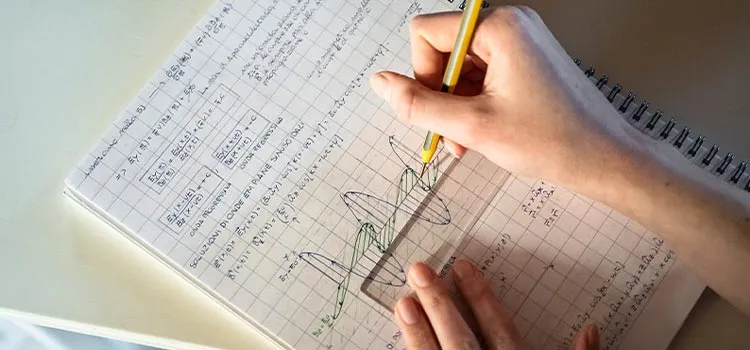GCSE
GCSE Maths Formula Sheet – All Formula with Explanation
The pass rate of GCSE examinations decreased from 76.3 to 73.2% in June 2022, meaning that more students could barely achieve a standard pass.
We all know how challenging the preparation period for GCSE exams can be, especially for subjects like Mathematics. Studying for hours yet still needing to remember the formulae while solving past papers can often be frustrating. To solve this problem, the best thing to do is to compile a GCSE Maths formula sheet!
A formula sheet containing all vital formulae covering all the syllabus topics.
Yes, even though some GCSE boards (WJEC and CCEA) will provide the students with one during their exams, you still need one to study!
Hence, we have come up with this blog to help you compile a formula sheet and explain why it is necessary to do so.
Let’s get started!
Table of Content
Types of GCSE Maths Exam
Five awarding bodies offer types of GCSE Maths Exam GCSE Mathematics qualifications in the UK.
These are –
- Pearson Edexcel
- AQA
- OCR
- WJEC
- CCEA
These five boards have been offering GCSE Mathematics to learners since the beginning, as Mathematics is a compulsory subject imposed by the government.
Now, although it is mandatory, it is quite a challenging subject. Hence, every learner can’t be good at it.
To solve this issue, each exam board offers mainly two types of GCSE Maths Exams.
These are –
- Foundation GCSE Maths Exam
- Higher Tier GCSE Maths Exam
A student is allowed to take either Foundation tier or Higher Tier but not both simultaneously.
Foundation GCSE Maths
Foundation GCSE Mathathematics, most commonly known as Foundation Tier, covers Grades 1 to 5, with 5 being the highest grade. According to the previous grading scale, 5 is equivalent to a ‘C’ grade. The main focus of this exam is Numbers and Ratios.
Higher Tier GCSE Maths
The Higher Tier GCSE Maths Exam covers Grades 4 to 9, with 9 being the highest grade.
Unlike Foundation Tier, it mainly focuses on Algebra contents.
The syllabus of both the Foundation tier and Higher tier is the same. The topics include –
- Number
- Algebra
- Ratio, Proportion and Rates of Change
- Geometry and Measures
- Probability
- Statistics
GCSE Maths Formula Sheet
We all know how difficult it is to remember tons and tons of information, and that too, Mathematics formulas. According to new guidelines, GCSE exam boards will provide you with a formula sheet for Maths for 2023 and 2023. To ensure learners do not have to memorise everything; however, it only covers some content for the syllabus.
Hence, it is advised to remember the formulae to help you solve problems quickly and get a good grade.
GCSE Maths Combined Formula Sheet
To save your time, we have compiled some of the most important formulae for each level according to the topics.
To download this combined GCSE maths formula sheet PDF, Just put your name and email and click the download button.
[gravityform id=”1″ title=”true” description=”true”]
GCSE Maths Complete Formula Sheet
You might think of it as time-consuming, writing down all the formulae on a piece of paper when you could use the time to solve maths.
Hence to help you save time, we have attached the links to the formula sheet for each exam board that will be available for your mathematics exam.
- Edexcel maths formula sheet GCSE- Foundation Tier May-June’2023, Higher Tier May-June’2023
- GCSE maths formula sheet AQA – Maths Formula Sheet Foundation Tier 2023, AQA Higher Tier Maths Formula Sheet 2023
- OCR Formula Sheet Maths GCSE – Foundation Tier June and November 2023, Higher Tier June and November 2023
- WJEC Formula Sheet Maths GCSE – Foundation Tier November 2022 and Summer 2023, Higher Tier November 2022 and Summer 2023
- CCEA GCSE Maths Formula Sheet – Foundation Tier Additional Materials Summer 2023, Higher Tier Additional Materials Summer 2023
Using these materials, you can either write them down in your notebook. Or you could print them or read from the pdf whenever, whatever is more convenient for you.
Now, what are the benefits of having a formula sheet?
Importance of GCSE Formula Sheet
Firstly, having a formula sheet by your side while solving past papers is very important as it will help you practise more efficiently. For instance, you are working with Quadratic equations; however, you need help recalling the quadratic formula to find the roots of x. Instead, you could quickly go through the formula sheet for a quick read and solve your problem.
Moreover, the maths formula sheets will come in handy during the GCSE exams because –
- It will help the candidates focus on problem-solving rather than remembering the formula.
- It might help you remember the formula not given in the sheet. For example, say you forget the procedure for the volume of a cylinder, but in your formula sheet, you are given the formula for the area of a circle. Using that formula, you can recall the volume of a cylinder equation.
Memorising GCSE Maths Formulae Quickly
As we know, it is not easy to remember tons of formulas while learning maths, and candidates might only sometimes get a formula sheet with the question paper.
To help you learn the formulae as quickly as possible, we have listed down some tips/tricks.
- Try to use a Mnemonic Device – There are numerous ways to use a mnemonic device. For example, one of the most famous mnemonic devices for maths is PEMDAS (Parenthesis, Exponents, Multiplication, Division, Addition, Subtraction).
To help you recall the GCSE maths formula, you could use existing Mnemonic devices such as SOHCAHTOA for trigonometric calculations. On the other hand, you could also make up your own, whatever makes you memorise the formula.
- Try to understand each formula – Try to understand each formula – The mnemonic Device method might sometimes confuse you if you need help remembering what it stands for. Therefore, it would be better for you to understand what each formula’s contents mean or stand for.
For example, let’s go with an easy one. We know that
A = 1/2 x b x h
Now, break down the formula into parts, such as A, b, h.
Where A = Area of a triangle,
b = base of the triangle, and
h = height of the triangle
Practice writing it down a few times. You will see that you have mastered the formula.
- Lastly, always remember to take care of your body.
Take a deep breath and relax before you start studying. Make sure you get sound sleep every night.
FAQ
Is GCSE maths hard?According to a 2015 report by BBC News, GCSE maths is slightly less complex than other exams; however, the report also stated that there is more to an exam being hard than complex. |
What calculator is not allowed in GCSE?Usually, both scientific and advanced scientific Casio calculators are permitted in GCSE. Moreover, graphical calculators are also allowed. On the other hand, in non-calculator examination papers, avoid taking any calculator with you. |
What are the 5 main GCSE subjects?The three core GCSE subjects students living in England and Wales have to take are English, Maths and Science. You can choose the other two subjects from the optional lists, such as French, Geography, Art and Design, Computer Science, Food Technology etc. |
Are you allowed water in GCSE exams?Yes, you are allowed to take a bottle of water. Make sure it is in a clear, sealed bottle with the label removed; otherwise, the invigilator might not let you take it inside the exam room. |
What happens if you are too ill to sit for your GCSEs?According to gdc.uk, if a candidate gets sick before your exams, you should immediately contact the examination team and also send a copy of your original medical certificate. |
Is it hard to get a 8 in GCSE?A grade 8 in GCSE means that the candidate is proficient in the subject with hardly any mistakes. Hence, it is notably tough to secure an 8. Nevertheless, it is still easier than securing a 9. |
Is Edexcel the hardest exam board for maths?Since Pearson Edexcel is quite a renowned board for Maths, it is supposed to be a bit difficult compared to other boards. |
How many marks do you need to pass GCSE maths higher in 2023?In the new grading scheme(9-1), candidates must score at least 4(equivalent to C) for a standard pass. For a strong pass, candidates need a 5 grade. |
Conclusion
We have often seen talented students end up with poor results only because of forgetting a mere maths formula. With the help of the GCSE maths formula sheet, candidates do not have to worry much about memorising tons of formulae; they have a high possibility of forgetting.
However, that does not mean you will rely on them. Instead, candidates should still study diligently and practise as many past papers as possible to pass with flying colours.


